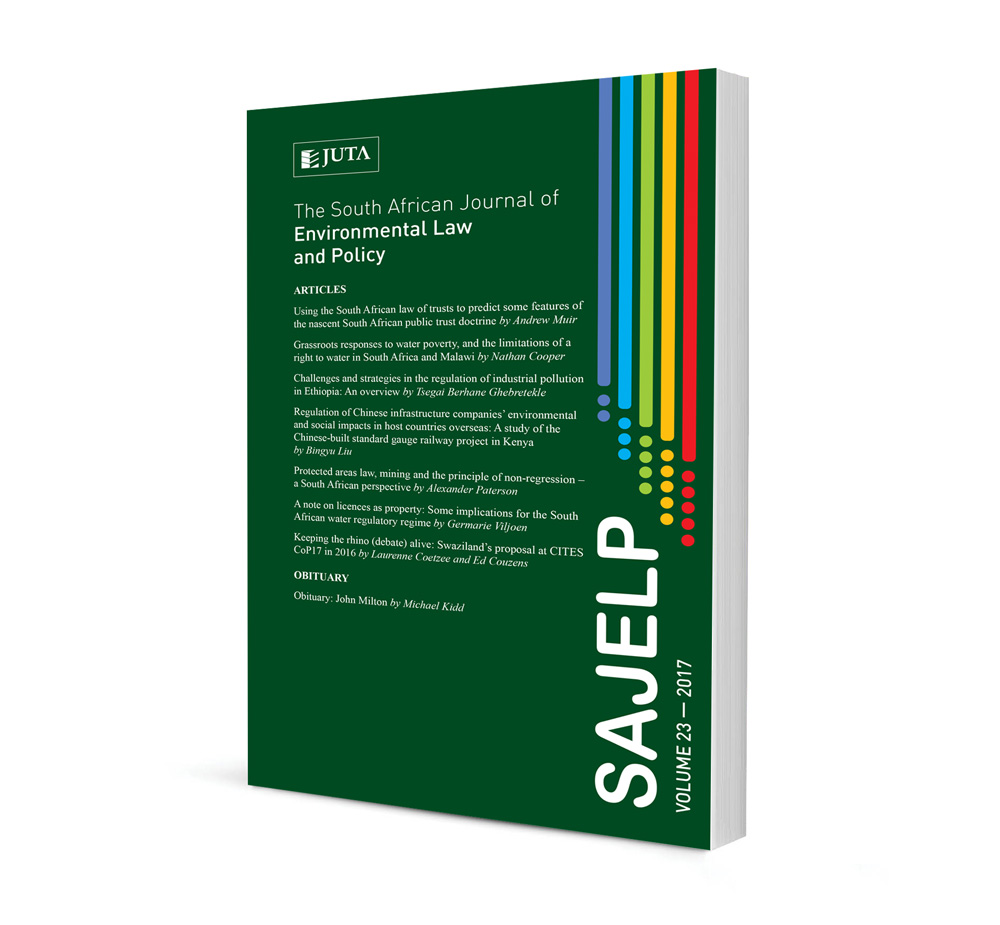
Grassroots responses to water poverty, and the limitations of a right to water in South Africa and Malawi
Authors Nathan John Cooper
ISSN: 2616-8499
Affiliations: None
Source: South African Journal of Environmental Law and Policy 2017, p. 31 – 73
Abstract
This article considers how effective socio-economic rights are in securing sustainable access to sufficient water for people in two water-scarce countries in the SADC region: South Africa and Malawi. In South Africa, despite a groundbreaking constitutional right to water, challenges remain to achieving sustainable access to sufficient water for many of the country’s most vulnerable people. Water in South Africa has largely been re-cast as a commodity, exposed to market rules, proving problematic for many and giving rise to a variety of responses, including litigation. But in the seminal case of Mazibuko the Constitutional Court failed to provide robust protection or to adequately enunciate a substantive core to the right to water. Similarly, in Malawi, while there is no explicit constitutional provision for water, a right to development does exist. Fulfillment of this right clearly requires access to basic resources including health care, food, and by implication, water. In international law, South Africa and Malawi have ratified several treaties affirming the right to safe drinking water and sanitation. Indeed the Malawian case of Chihana v Republic established the Universal Declaration of Human Rights as part of domestic law. Yet in both countries millions of people continue to live in water poverty (without sustainable access to sufficient water). Such failure of ‘rights-talk’ has provided impetus for the formation of ‘commons’ strategies for water allocation. Indeed ‘commoning’ is beginning to represent not only an emerging conceptual strand in peri-urban resource allocation, but also a potentially dynamic, contemporary, eco-sensitive, socio-cultural phenomenon, striving towards innovative, interactive and inclusive forms of planning and social engagement. Against the backdrop of unequal water access, commoning offers glimpses of a subaltern paradigm replete with empowering and enfranchising potential.